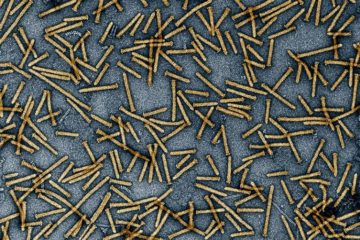Heidi Ledford in Nature:
 Researchers have hijacked a molecular ‘syringe’ that some viruses and bacteria use to infect their hosts, and put it to work delivering potentially therapeutic proteins into human cells grown in the laboratory. “It’s astonishing,” says Feng Jiang, a microbiologist at the Chinese Academy of Medical Sciences Institute of Pathogen Biology in Beijing. “It is a huge breakthrough.” The technique, published in Nature on 29 March1, could offer a new way to administer protein-based drugs, but will need more testing before it can be used in people. With further optimization, the approach might also be useful for delivering the components needed for CRISPR–Cas9 genome editing.
Researchers have hijacked a molecular ‘syringe’ that some viruses and bacteria use to infect their hosts, and put it to work delivering potentially therapeutic proteins into human cells grown in the laboratory. “It’s astonishing,” says Feng Jiang, a microbiologist at the Chinese Academy of Medical Sciences Institute of Pathogen Biology in Beijing. “It is a huge breakthrough.” The technique, published in Nature on 29 March1, could offer a new way to administer protein-based drugs, but will need more testing before it can be used in people. With further optimization, the approach might also be useful for delivering the components needed for CRISPR–Cas9 genome editing.
…While Zhang and his collaborators searched for ways of transporting proteins into human cells, microbiologists were learning more about an unusual group of bacteria that use molecular spikes to pierce a hole in the membranes of host cells. The bacteria then transport proteins through the perforation and into the cell, exploiting the host’s physiology in their favour.
More here.
